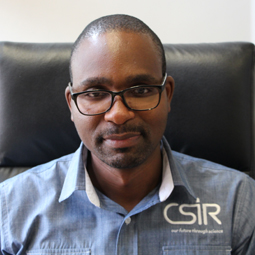South Africa collaborates with Japan to combat plastic pollution
The leakage of plastic waste into the environment, especially in the marine environment, is an issue of growing global concern. In South Africa, the need to find sustainable solutions is highlighted by the growing consumption of single-use plastic combined with weak waste collection, recycling and disposal systems. According to research conducted by Jambeck et al in 2015, the country ranked 11th in terms of the mass of mismanaged plastic waste by countries globally in 2010.
The leakage of plastic waste into the environment, especially in the marine environment, is an issue of growing global concern. In South Africa, the need to find sustainable solutions is highlighted by the growing consumption of single-use plastic combined with weak waste collection, recycling and disposal systems. According to research conducted by Jambeck et al in 2015, the country ranked 11th in terms of the mass of mismanaged plastic waste by countries globally in 2010.
Following a bilateral meeting between President Cyril Ramaphosa and the Prime Minister of Japan, Mr Shinzo Abe, in the run-up to the G20 Osaka summit in June this year, Japan committed grant funding to the value of USD 1.8 million (R25 million) for a project to combat marine plastic litter in South Africa.
The three-year project aims to support the South African industry to transition from conventional plastics to more environmentally sustainable alternative materials. It will be implemented by the United Nations Industrial Development Organization (UNIDO), in collaboration with the Council for Scientific and Industrial Research (CSIR).
The funding agreement for the project was signed between the Japanese government and UNIDO at a high-level signing ceremony in Pretoria on 26 July 2019. The event was attended by the Deputy Minister of Trade and Industry, Ms Nomalungelo Gina; the Ambassador of Japan, His Excellency Mr Norio Maruyama; UNIDO representative, Mr Khaled El Mekwad; Executive Director of Plastics SA, Mr Anton Hanekom; and CSIR Group Executive for Business Excellence and Integration, Ms Khungeka Njobe, among others.
The project will include the assessment of new alternative materials such as home-compostable bio-degradable plastic to substitute single-use plastic products, and the demonstration of the feasibility of such alternatives in collaboration with industry. It will also focus on opportunities for local manufacturing and economic development. UNIDO’s international expertise in investment promotion in technology and innovation will be a catalytic element in the implementation, while the CSIR will bring to the project its extensive expertise in the assessment of possible new materials from a materials function and polymer science point of view. The CSIR will also ensure that applying new alternative materials to the South African context does not create new environmental challenges.
The event was concluded with a workshop with experts from UNIDO and the CSIR and the launch of a book published by UNISA Press titled: “Exploring the opportunities for biomass and organic waste valorisation in South Africa” by the Department of Science and Innovation.
The implementation of this project will give effect to Japan’s commitment to tackle marine plastic litter under the Marine Initiative, which will contribute to the realisation of the ‘Osaka Blue Ocean Vision’ introduced at the Osaka G20 Summit and UNIDO’s longstanding expertise and leadership in the areas of circular economy and waste beneficiation. The ultimate goal of the project is to contribute to the reduction of plastic leakage into the environment, including the marine environment.
Enquiries:
UNIDO
Petro de Wet: UNIDO SA Media and Gender Specialist
Email: p.dewet@unido.org
Tel: 060 979 1359
CSIR
David Mandaha: CSIR Media Relations Manager
Email: dmandaha@csir.co.za
Tel: 072 126 8910/012 841 3654
Embassy of Japan (Pretoria)
Naomasa Kugimoto
Email: naomasa.kugimoto@mofa.go.jp
Tel: 012 452 1500


